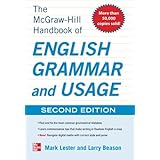connotation (Also connotations) : Related Words Words similar in meaning to connotation
- intension«
- connotation«
- predicate«
- implication«
- significance«
- postulation«
- predication«
- import«
- denotation«
- imply«
- word«
- phrase«
- connotative of«
- meaning«
- take a powder«
- literal meaning«
- connote«
- substance«
- suggest«
- intensional«
- entail«
- so-called«
- positive connotation«
- connotational«
- mean«
- snarf«
- canine carnivore«
- connotative«
- intimate«
- pussywhipped«
- metacommunicative competence«
- suggestive«
- logic«
- stubborn person«
- implicative«
- spell«
- paleonymy«
- emotional association«
- melioration«
- pig«
- posit«
- intensional definition«
- postulate«
- loaded word«
- extensional definition«
- loaded language«
- strong connotation«
- loaded«
- dog«
- logical implication«
- literal«
- emotional connection«
- extension«
- undercurrent«
- implied«
- double entendre«
- signification«
- har«
- subtext«
- undertone«
- green«
- referent«
- indicative«
- negative connotation«
- context«
- euphemism«
- entailment«
- conspiracy«
- semantics«
- pun«
- main reason«
- conditional relation«
- connotatively«
- admiration«
- hint«
- frustration«
- inkling«
- inference«
- connotationless«
- judgment«
- intimation«
- connotationally«
- mixture«
- reference«
- feeling«
- characteristic«
- desire«
- modal logic«
- box standard«
- band-aid«
- contrast«
- branch«
- strain«
- suggestion«
- view«
- set«
- breath«
- collection«
- glimmer«
- level«
- position«
- addition«
- tenor«
- glimmering«
- deduction«
- logician«
- illation«
- postulator«
- prompting«
- logistician«
- inferential«
- proclaim«
- significant«
- implicate«
- pregnant«
- implicit«
- signify«
- revelatory«
- suppose«
- presuppose«
- meaningful«
- assert«
- suggestible«
- make out«
- insist«
- significative«
- inexplicit«
- indicatory«
- intend«
- stand for«
- analogy«
- affirmation«
- grammatical meaning«
- derivation«
- signified«
- word form«
- signifier«
- subtlety«
- nuance«
- sense«
- lexical meaning«
- corollary«
- logical relation«
- overtone«
- moral«
- presumption«
- nicety«
- logical system«
- descriptor«
- symbolic logician«
- premise«
- meaningfulness«
- essence«
- assertion«
- extrapolation«
- refinement«
- assumption«
- gist«
- system of logic«
- revealing«
- intent«
- substantive«
- effect«
- suggestibility«
- express«
- form«
- proposition«
- lesson«
- drift«
- spirit«
- concern«
- burden«
- touch«
- signal«
- shade«
- signaling«
- statement«
- point«
- purport«
- core«
- symbolization«
- prompt«
- sign«
- proffer«
- symbolisation«
- syllogizer«
- syllogist«
- syllogiser«
- premiss«
- inexplicitness«
- implicitness«
- explicandum«
- explanans«
- explanandum«
- dialectician«
- get«
- aim«
- mark«
- drive«
- show«
- slur«
- antecedent«
- singular form«
- singular«
- plural form«
- plural«
- abbreviation«
- explicitness«
- word sense«
- word meaning«
- root word«
- main entry word«
- ghost word«
- entry word«
- negation«
- sense of purpose«
- modality«
- dialectic«
- symbol«
- pertinence«
- accent«
- omen«
- sneer«
- acronym«
- regard«
- symbolic representation«
- symbolic logic«
- telegraphic signal«
- particular proposition«
- particular«
- contrary«
- applicability«
- name«
- transitivity«
- twist«
- indication«
- purposefulness«
- clue«
- contradictory«
- etymon«
- representation«
- mental representation«
- internal representation«
- drumbeat«
- inwardness«
- note«
- feeler«
- covert«
- presage«
- syllogism«
- posthypnotic suggestion«
- visual signal«
- distress signal«
- distress call«
- ratiocination«
- axiom«
- purpose«
- theme«
- crux of the matter«
- crux«
- thought«
- menace«
- token«
- root«
- stress«
- mode«
- sophisticate«
- trace«
- pith«
- approach«
- smile«
- equal sign«
- mathematical logic«
- formal logic«
- idea«
- reflexivity«
- kernel«
- converse«
- trend«
- affect«
- citation form«
- augur«
- sum«
- minus sign«
- acceptation«
- cause«
- universal proposition«
- overture«
- notice«
- declaration«
- radical sign«
- radical«
- whistling«
- advert«
- vent«
- theorem«
- proposer«
- interest«
- input signal«
- input«
- pervert«
- warning signal«
- time signal«
- storm signal«
- starting signal«
- radiotelegraphic signal«
- output signal«
- electronic signal«
- universal«
- conclusion«
- philosopher«
- tip«
- alarm«
- talking point«
- rallying point«
- recall«
- bottom line«
- nub«
- lemma«
- all clear«
- campaign«
- symbolizing«
- be«
- indicator«
- alert«
- symbolist«
- movement«
- communication«
- animal communication«
- alarum«
- stem«
- base«
- heart and soul«
- meat«
- plus sign«
- high sign«
- crusade«
- say«
- confidential information«
- give«
- ghost«
- offer«
- radio beam«
- beam«
- whistle«
- tell«
- typification«
- ticktack«
- symbolizer«
- symboliser«
- suggester«
- reflexiveness«
- pertinency«
- nitty-gritty«
- indicant«
- dog-ear«
- designatum«
- denotatum«
- representative«
- bugle call«
- symbolising«
- marrow«
- radio beacon«
- heart«
- retreat«
- state«
- curfew«
- steer«
- telephone number«
- phone number«
- number«
- output«
- forecast«
- lead«
- proposal«
- effort«
- return«
- center«
- centre«
- hold«
- wind«
- start«
- project«
- recording«
- advance«
- Bayes' postulate«
- William Stanley Jevons«
- Willard Van Orman Quine«
- W. V. Quine«
- Venn«
- Russell«
- Quine«
- Peirce«
- John Venn«
- Jevons«
- Earl Russell«
- Charles Sanders Peirce«
- Charles Peirce«
- Bertrand Russell«
- Bertrand Arthur William Russell«
- Aristotelian logic«



